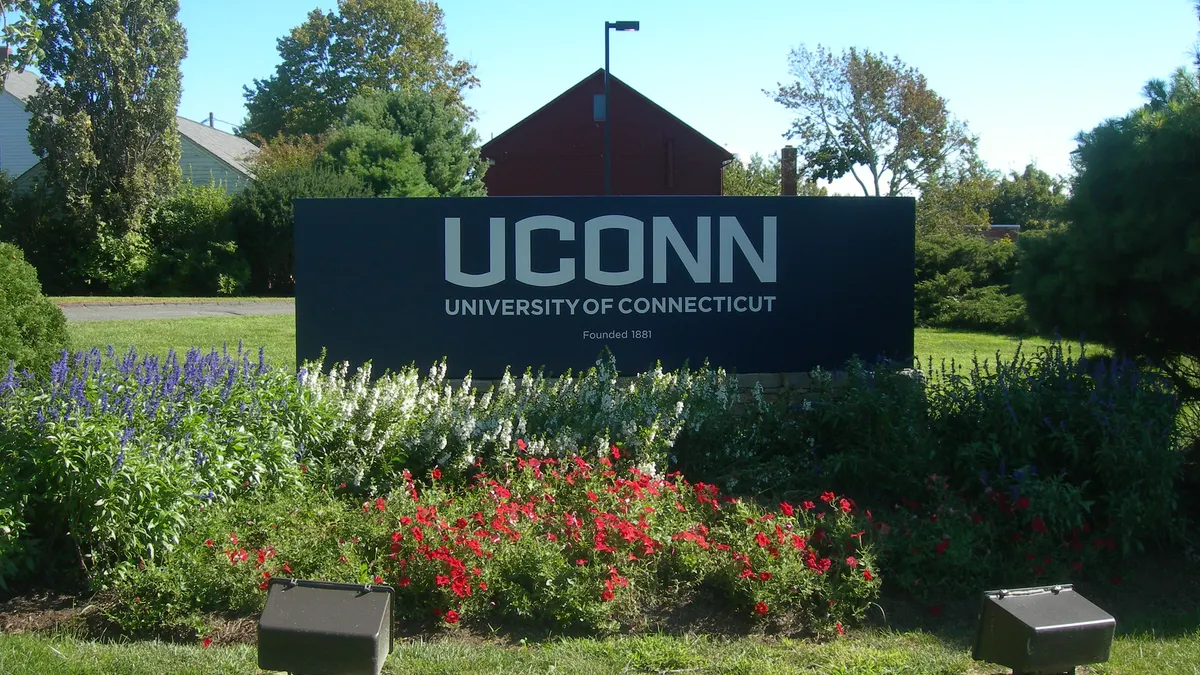Spring is almost in the air, and that means it’s time for universities and colleges to crank up the PR machines for their commencement speakers. They’re touting the politicians, authors, actors, TV personalities, and other celebrities of varying degrees who are scheduled to grace their campuses.
Meanwhile, the speakers are dusting off their best deep thoughts and platitudes to inspire the new graduates. And students and faculty members are gearing up for the commencement speaker protest season.
This year, former Secretary of State Condoleeza Rice, scheduled as the Rutgers University commencement speaker on May 18th, is one of the more notable targets. The Rutgers' New Brunswick Faculty Council voted last month to ask the university’s board to rescind its invitation to Rice, citing her role in the Bush administration's efforts to drum up support for the war in Iraq. New Jersey lawmakers have criticized the Rice critics, and Rutgers President Robert Barchi wrote a letter in support of her selection.
With that in mind, here’s a look at some of the most infamous controversial commencement speakers through the years:
Cheney University of Pennsylvania, 1982: Minister Louis Farrakhan
There was a time when Farrakhan—leader of the Nation of Islam—could stir up student protests by simply being considered as a campus speaker. That’s because he would often sprinkle his speeches with subtle, and sometimes blatant, anti-Semitic comments. Now, such speech mostly generates shrugs. It’s not clear whether his commencement address for Cheney University created any protests. He would go on to lead the Million Man March in Washington in 1995.
Wellesley College, 1990: First Lady Barbara Bush
Students protesting the selection of the First Lady as commencement speaker for the 2,200-student women’s college, gathering 150 signatures for a petition, said they were “outraged” because she wasn’t a good role model for the career women educated at Wellesley. Bush, who dropped out of Smith College to get married, seemed unperturbed by the protesters, saying: ''They're 21 years old and they're looking at life from that perspective. I don't disagree with what they're looking at.'' But, she said: ''I don't think they understand where I'm coming from. I chose to live the life I've lived, and I think it's been a fabulously exciting, interesting, involved life.
Harvard University, 1993: Chairman of the Joint Chiefs of Staff Colin Powell
Homosexuals were still banned from serving in the military, and graduates held pink balloons and “Lift the Ban” signs during Powell’s speech. Also, some graduates stood with their backs to him.
University of California, Berkeley, 2002: Jonny Moseley, Olympic gold medal skier
Students angered by the choice of Moseley — who at the time wasn’t a college graduate himself (he later earned a degree from Berkeley in 2007) — said they were insulted that the university didn’t invite someone who had contributed more to society. One student protested that if the college was choosing an athlete, it should choose someone with a greater social and charitable presence, like Lance Armstrong — though we're not sure if that sentiment would stand today.
Syracuse University, 2002: Former New York Mayor Rudy Giuliani
Some students held their wallets aloft during Giuliani’s speech — a protest act meant to symbolize Amadou Diallo, the West African immigrant shot 41 times by New York police as he was reaching for his identification. Other students stood with their fists in the air. And some professors of the university’s African-American studies program didn’t attend commencement to protest what they called Giuliani’s insensitivity to racial issues.
Nova Southeastern University, 2006: Author Salman Rushdie at
Rushdie had lived with official death threats made against him since his book “Satanic Verses” was published in 1988, so he probably didn’t lose sleep over a boycott of his address by undergraduates in the International Muslim Association.
New School, 2006: Sen. John McCain
“Jeers, boos and insults flew” at the Vietnam War hero and presidential hopeful at the time, the New York Times reported. Protesters raised a banner and waved orange fliers declaring “Our commencement is not your platform." Even one of the student speakers before McCain talked about her objection to his visit, and she received a standing ovation.
Brigham Young University, 2007: Former Vice President Dick Cheney
Some students and professors objected to the selection of Cheney, fearing it would be seen as an endorsement of his conservative politics. Students also organized an alternative commencement where Ralph Nader was the speaker.
University of Georgia, 2008: Supreme Court Justice Clarence Thomas
Some faculty members objected to bringing in Thomas for a commencement address at a time when the university was dealing with a series of sexual harassment cases and the reforms that resulted from them. Thomas of course was accused of sexual harassment at his Senate confirmation hearings, becoming a participant in what was arguably the most publicized sexual harassment case in history.
Northwestern University School of Law, 2008: Former Cincinnati Mayor Jerry Springer
Students circulated a petition objecting to the selection of Springer, a pioneer in trashy daytime TV talk shows. But the Class of 1968 alumnus would receive a standing ovation for his speech about his personal ethical challenges and his family’s flight from Nazi Germany.
University of Notre Dame, 2009: President Barack Obama
The President was met with protests because of his support for abortion rights. Graduates even taped yellow crosses and baby feet pictures to their mortarboards. In all, 65,000 people signed a petition objecting to his visit and at least 27 anti-abortion protesters off campus were arrested before his address.
Syracuse University, 2010: Jamie Dimon, chairman and chief executive officer of JP Morgan Chase & Co.
With the country still in the throes of the Great Recession that was blamed on fat-cat bankers, the choice of the chief executive of one of the largest banks in the world did not go over well with many of the students.
University of Michigan Law School, 2011: Sen. Rob Portman
More than 100 graduates walked out on Portman, a 1984 graduate of the school, during the graduation ceremony to protest his anti-gay views, which included his support of the Defense of Marriage Act, a vote in 1999 for a failed amendment to bar same-sex couples in Washington D.C. from adopting children and his vote for a constitutional amendment to ban same-sex marriage. Nearly 100 graduating student wrote a letter to the law school dean objecting to his selection, and 298 students signed a petition objecting to the choice.
Millersville University, 2013: Pennsylvania Governor Tom Corbett
The governor had proposed steep budget cuts for state schools, which included Millersville, so his selection as commencement speaker seemed odd. He was met with students who turned their chairs away from him as he spoke, professors wearing pins that read “I support public education,” and some interesting mortarboard signs, including one that read “Game of Loans.”
Would you like to see more education news like this in your inbox on a daily basis? Subscribe to our Education Dive email newsletter! You may also want to read Education Dive's look at what the next big ed tech IPO might look like.














